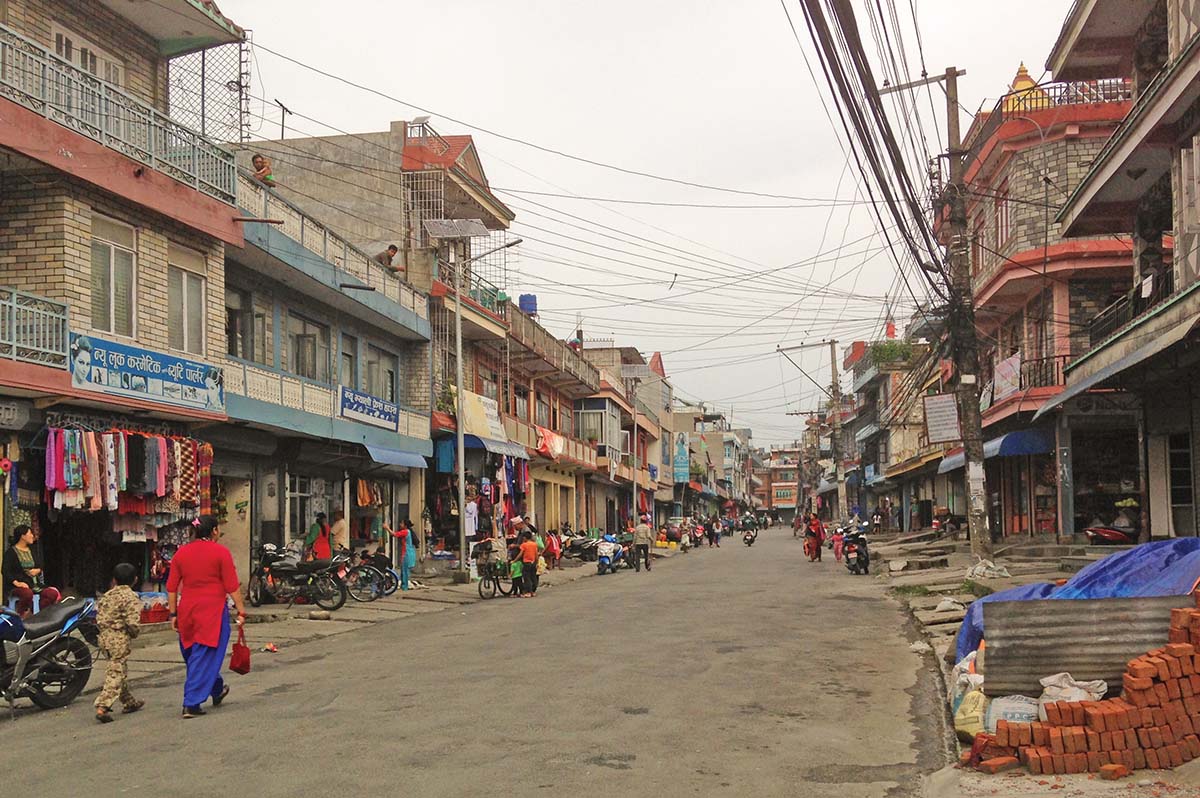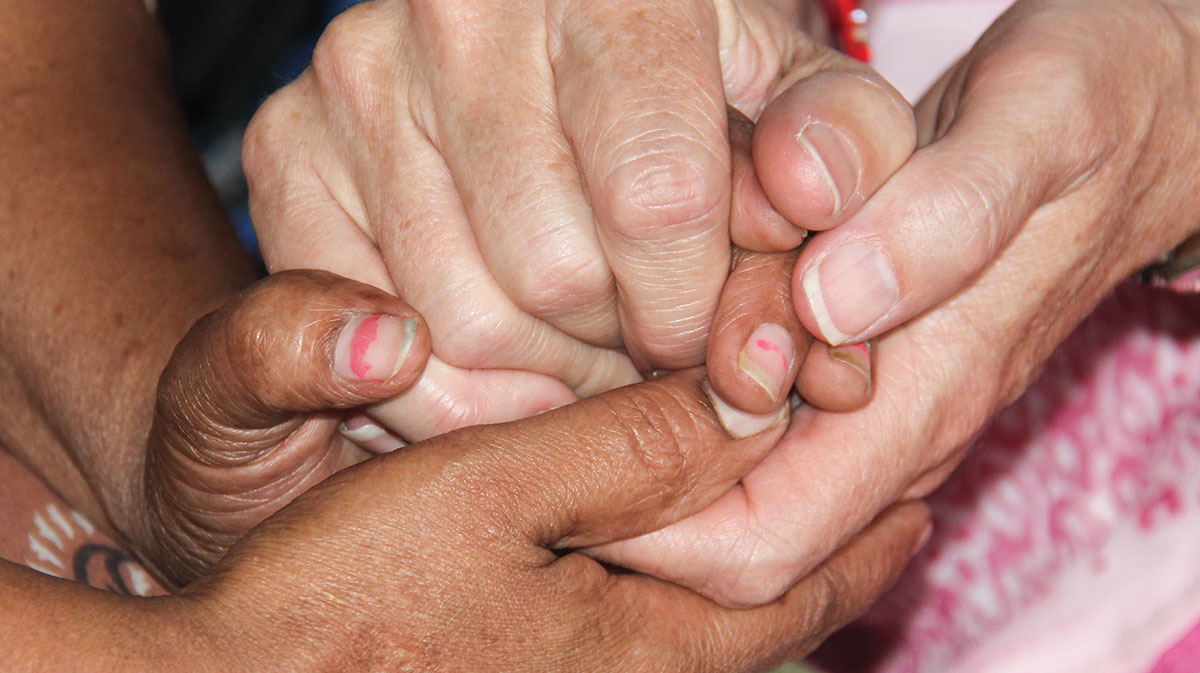Christ our model: Offering healthcare in Nepal

A busy street in Nepal.
CMS workers G & R serve in Nepal using their engineering and medical skills to show Christ’s love. They explain how Jesus’ example of addressing the whole person, physically and spiritually, is an inspiration to care for the poor, marginalised and needy.
“My God left the glory of heaven to come and serve us lost and needy people. He is my inspiration to come and serve people in need here.”
This was the answer I (G) gave to a visiting government officer when she asked me why I had left Australia, the land of opportunity, when many from Nepal have left, or want to leave, to live in countries like Australia. The officer had arrived unannounced to check on what work the expatriate visa holders were doing. I knew the government suspicions that many foreigners are here under false pretences to proselytise. I wanted to be honest, but not jeopardise my visa.
Perhaps there is more acceptance of religious motivation here, but that day she didn’t probe further and moved onto other questions. While government officials and adherents of the majority religion may not want to see the Church growing, many still respect the quality care and selfless service that they see demonstrated by churches and Christian organisations.
A biblical basis for healthcare
“As the Father has sent me, so I am sending you.” This is the model of mission we see in John 20:21. As gospel workers in Nepal, we are privileged to have seen how healing and caring for others is foundational in ministry and kingdom endeavours.
The Bible tells us that suffering, pain and death result from sin, but redemption, healing and life are part of God’s restoration plan. Throughout the Bible, we see God bringing healing, and in the New Testament in particular, healing and caring for others is evidence of the reality of the kingdom. For Jesus, wholeness in mission included proclaiming the kingdom, teaching, and healing or meeting the physical needs of those around him. He had compassion for people who suffered fromwhatever cause, be it spiritual, physical, mental or emotional. For him, it was just as easy to say, “Your sins are forgiven,” as it was to say, “Be healed, pick up your bed and walk.” His healing ministry was not an add-on to increase popularity. In Matthew 11:4–6, Jesus claims that the healings show that he is the Messiah. So the healings were both a sign of the kingdom and the coming of the kingdom.
Our family has become Christian since we saw the power of the Lord Jesus and I am doing ministry now.
Jesus handed his mission on to his disciples to continue in Matthew 10. The apostles later continued it by preaching the gospel together with healing and alleviating human suffering. Wholeness in mission requires both aspects to be held together. Jesus’ instructions in the Great Commission to teach them “to obey everything I have commanded you” (Matthew 28:20) include the understanding that entering the kingdom will mean exemplifying the Good Samaritan and loving our neighbours. So it is from the Bible that we come to understand healthcare as a valid expression of Christian love and not just an excuse for a visa.
Two stories of faith
Nepali Christians have a very high view of God’s healing power. Many come to church to pray before going to a clinic or hospital and prayer meetings frequently include health issues. At our local Nepali church where we attend, 68-year-old Bir Bahadur* struggles with poor eyesight, troublesome arthritis and leprosy-related disability of his hands and feet. He comes forward for a healing prayer after each service, expectantly bringing his physical needs before the Saviour, while continuing to trust in God’s grace and persevere in faith. Like many others at our church who carry outward scars, have reduced ability or are economically poor, his spirit rejoices in the abundant life he has in Christ. We have learned from and been blessed by him and others, being deeply challenged about what it means to rejoice in all circumstances.
Many in the Nepali Church also have stories to recount of God’s healing intervention. Raj* shared with us a story quite typical of Nepali believers: “My grandmother was very ill when I was a teenager, and even though we called the Hindu healers and visited the local health facility, she continued to get worse. Some Christian neighbours offered to pray in Jesus’ name. She became stronger within a few hours and soon became completely well. After that, my father and all our family trusted Jesus, even though we experienced a lot of persecution from other realtives and our community. Our family has become Christian since we saw the power of the Lord Jesus and I am doing ministry now.”

G & R use their professional skills to demonstrate Jesus’ love through healthcare and community work.
The impact of holistic healthcare
We are seconded to a national Christian organisation that seeks to reach the most needy, marginalised and unloved in Nepal. We use our professional skills—engineering and medical—as part of a team demonstrating Jesus’ love through healthcare and community work. Many who have come to the hospital have also heard about Jesus and been irresistibly drawn to the source of love. Observing the way Christians act and care for one another has been a key factor in changing non-believers into seekers.
However, it is not only expatriates who are able to offer this life-changing love. In the 65 years since the Nepali Church was established, there has been amazing growth. From the first baptised believer in 1951, the Church has grown to more than one million believers today. And despite legal restrictions against open proclamation, the wholeness in mission that Jesus exemplified can have tremendous impact.
We see this in our church as they seek to respond to the increasing numbers of frail elderly in our community without adequate care and with no social support system. Our church’s vision to provide care is now taking the form of building a 10-bed aged care centre adjacent to the church, and planning activities to support other elderly people still living at home. We have seen some amazingly sacrificial giving for this project from people who have very little themselves. It is a joy to see an emerging church in a less resourced country already demonstrating to its community the holistic love Jesus.
Just as Jesus is G and R’s motivation to go, he is also their motivation to stay. CMS is committed to long-term mission, because we believe it provides deep cultural insight and strong pastoral care, resulting in effective gospel witness. Will you commit to faithful prayer, care and financial support for our missionaries as they serve God across cultures?
GO
Could you consider going long-term? Perhaps God has placed it on your heart to go where there is a need for gospel workers. Or perhaps you’re only just now thinking about it. You can find out more about becoming a missionary at cms.org.au/go.











































































































